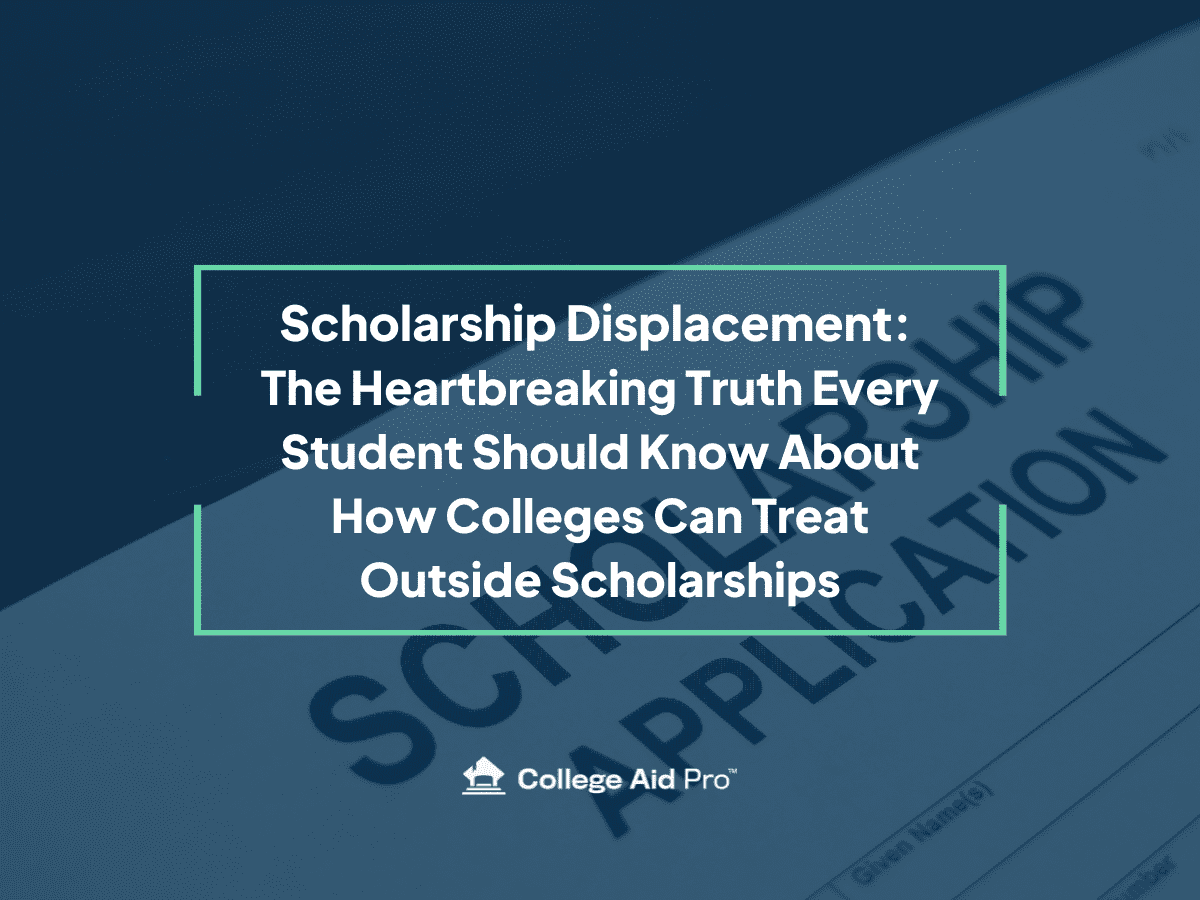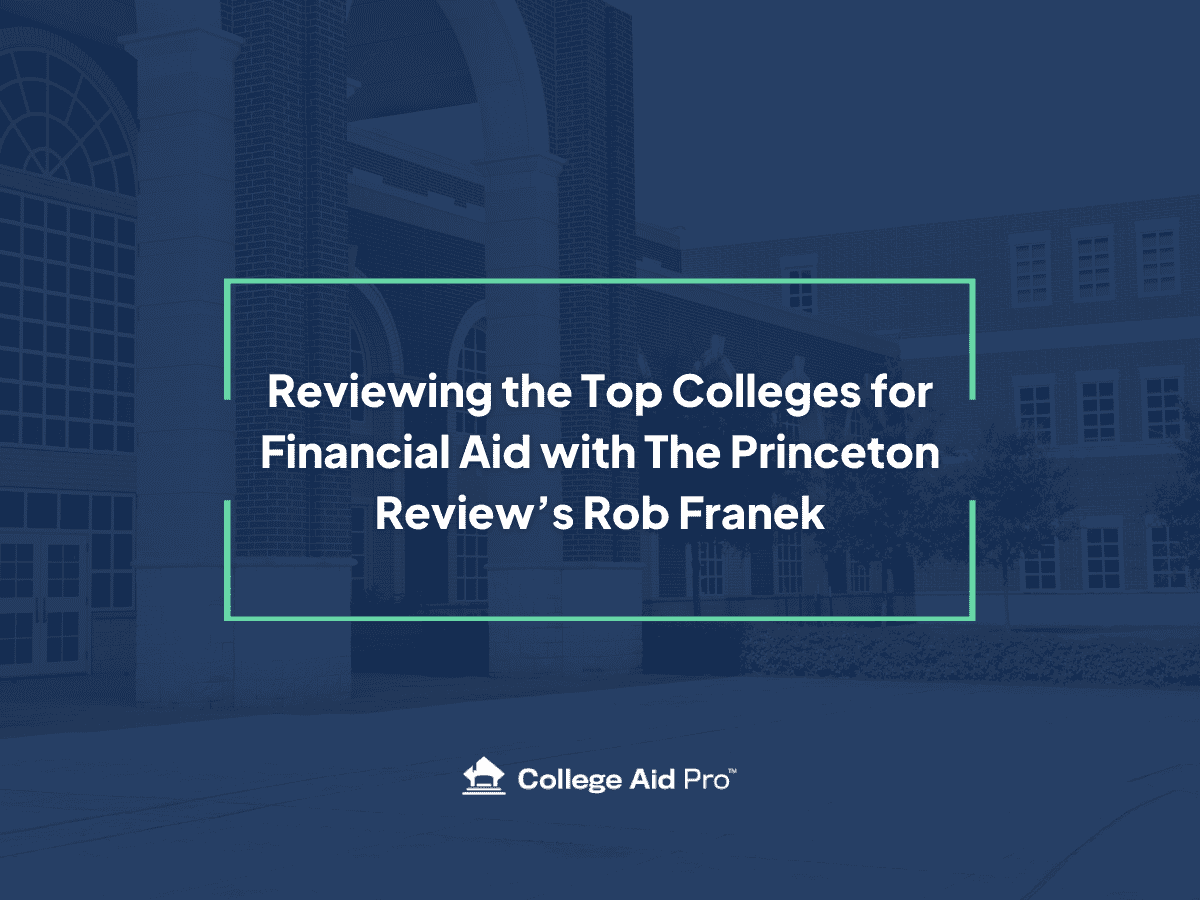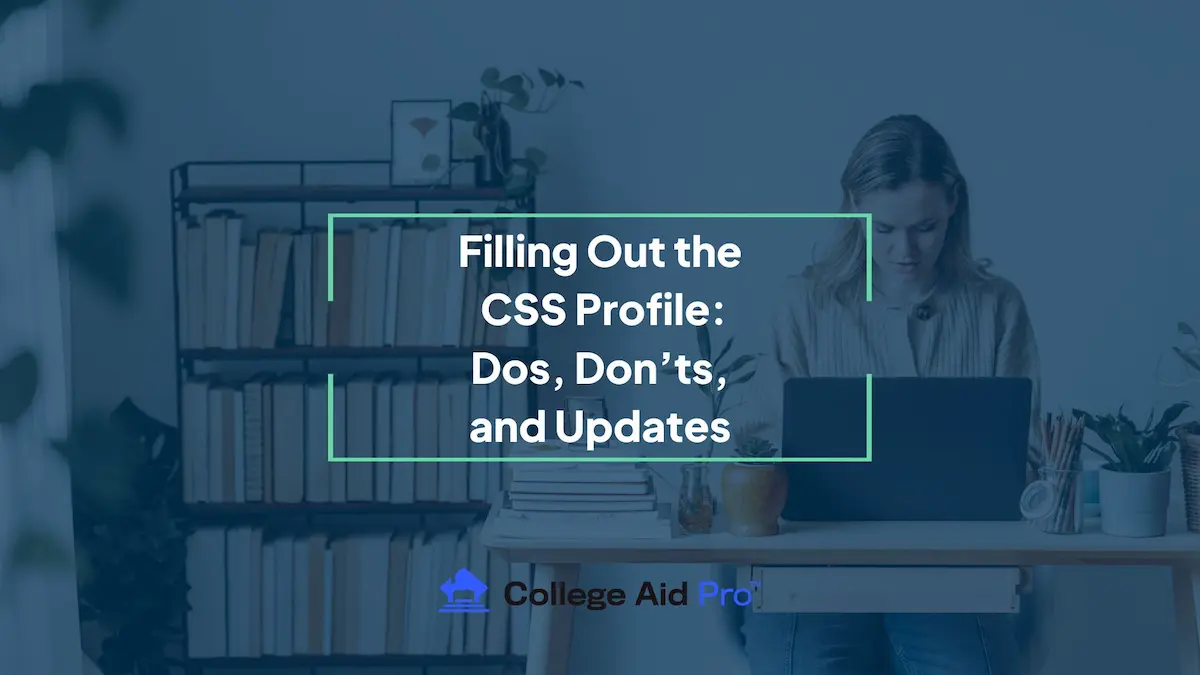Understanding Scholarship Displacement: A Hard-Learned Lesson from Our Family’s College Journey
Navigating the financial aspects of college can be a maze, one that my family and I learned to traverse the hard way. Like many families, we thought we were ahead of the game by encouraging our child to apply for as many outside scholarships as possible. We believed that securing these scholarships would reduce our out-of-pocket expenses and make the financial burden of college a little lighter. However, we soon discovered a frustrating reality known as scholarship displacement.
What is Scholarship Displacement?
Scholarship displacement occurs when a college reduces a student’s institutional aid when the student wins an outside scholarship. Essentially, instead of adding the external scholarship funds on top of the existing aid, the college subtracts an equivalent amount of institutional aid, resulting in little to no net gain for the student. This can feel like a zero-sum game, where all the hard work put into securing scholarships doesn’t translate into real financial benefit.
The Reporting Requirement
When your child wins an outside or private scholarship, colleges typically require you to report those winnings to them. This is where things can take a negative turn. Once the college is aware of the additional funds, they might adjust their own financial aid package. This adjustment often reduces the amount of aid they provide, which can be incredibly disheartening for students and families who have worked diligently to secure these scholarships.
A Real-World Example

Imagine your child has worked tirelessly to win a $5,000 scholarship from a local organization. You celebrate, thinking this money will significantly lower your out-of-pocket costs. However, your college’s financial aid office then reduces your institutional grant by $5,000. In this scenario, the outside scholarship doesn’t actually reduce your costs; it merely replaces the college’s money with the scholarship money, leaving your financial situation unchanged. This practice can be especially frustrating because it feels as though all the effort put into winning the scholarship was for naught.
Why It’s So Frustrating
For families like ours, this displacement is disheartening. We pushed our child to search for and apply to numerous scholarships, believing it was the key to reducing college expenses. She spent time and energy writing essays, filling out applications, and collecting recommendation letters, while I continued to nag her to keep applying and working hard. If we had known that her university practiced scholarship displacement, we would have encouraged our daughter to use that time more effectively – maybe taking on a part time job earning money that could cover college expenses instead of applying to outside scholarships.
When the college reduces its own aid in response to our child’s success, it feels like a punishment for doing everything right. The sense of achievement and financial relief quickly turns into frustration and disappointment.
States That Have Taken Action
Some states have recognized the unfairness of scholarship displacement and have created legislation to prevent this practice. Although policies differ in each state, it is a step forward in the right direction.
- Maryland
- New Jersey
- Pennsylvania
- Washington
- California
- Minnesota
These laws aim to protect students from losing their hard-earned scholarship funds to institutional aid adjustments, ensuring that the extra effort students put into securing outside scholarships truly benefits them.
Other states considering legislation include Arizona, Illinois, and Wisconsin. There was an attempt to create a federal law aimed at increasing transparency of scholarship displacement policies back in September of 2021. The Helping Students Plan for College Act would have required colleges and universities to inform both prospective and enrolled students how their institutional aid could be impacted, and what parts of their aid package could be adjusted or reduced if they were awarded outside scholarships. This bill never received a vote and died.
Questions to Ask Colleges About Scholarship Displacement

If you don’t live in or attend school in a state that has laws against scholarship displacement, it’s important to know how your college handles outside scholarships.
When considering colleges, it’s essential to understand their policies on scholarship displacement. Here are three critical questions to ask:
- Do you practice partial or full scholarship displacement?
Understanding whether the school will reduce their aid fully or partially in response to an outside scholarship can help you plan better.
- If displacement is practiced, will the college reduce loans and work-study first?
Some colleges might reduce loans or work-study requirements first before cutting grants, which can still offer a financial benefit.
- Do I have to use my private scholarship for this year’s tuition?
This can help you determine if the scholarship funds can be applied to other expenses like room and board, books, or travel, or even be saved for another year’s tuition payment.
A Silver Lining: Direct Scholarship Payments

An emerging trend among some scholarship providers is to send the award directly to the student rather than the school. This allows students to use the funds for a variety of college-related expenses beyond tuition, such as room and board, books, or travel. Discussing these options with your scholarship provider can help you make the most of your awards and avoid displacement issues.
Our Commitment to Helping Families
At College Aid Pro, we understand the complexities and frustrations of the financial aid process. Our mission is to end the student debt crisis. How do we do that? We educate families on how to budget correctly for college, find institutions that fit their financial and academic needs, and maximize opportunities for free money.
Check out our unique software platform, MyCAP where you can search for schools and opportunities that fit your budget and needs. Our software can show you what YOUR family can expect to pay at any college in the US that you are interested in based on your personal profile information. We take your family’s finances and your student’s academic and merit status and generate your estimated net costs. To create your free account and get started, click here.
While scholarship displacement can be a significant hurdle, being informed and asking the right questions can help you minimize its impact. Learning how prospective schools apply outside scholarships could change your final decision. Don’t make the same mistakes our family did! Ask the questions and be an informed consumer in this college process. It’s all about finding the right strategies to ensure that your hard work in securing scholarships pays off and truly reduces your college costs.



